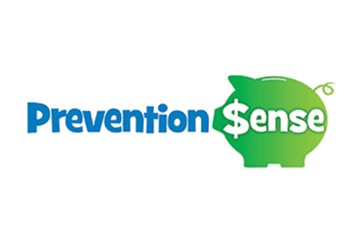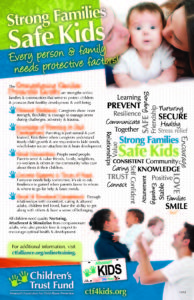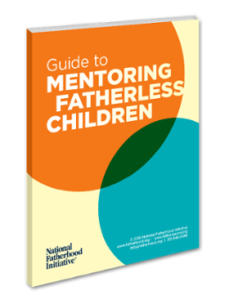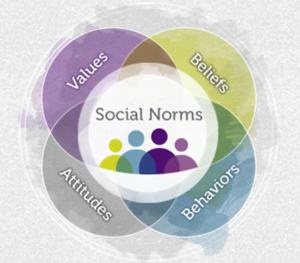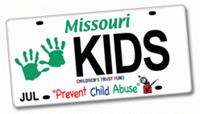May is National Foster Care Month
This year’s National Foster Care Month (NFCM) theme, “Empowering Caregivers, Strengthening Families,” highlights the importance of identifying, developing, and supporting prospective and current foster parents and kinship caregivers. Check out the NFCM official website for resources for parents, foster parents & caregivers, communities, child welfare professionals and much more.
New Podcast on Protective Factors
Child Welfare Information Gateway recently released a two-part podcast series highlighting the Protective Factors. Part 1 of this series focuses on the definition of protective factors as they pertain to child welfare, how child welfare professionals can identify and distinguish protective factors when working with parents and families, and how protective factors can be applied across entire communities and community-based programs.
The second installment takes a detailed look into a local agency’s efforts to holistically implement a protective factors-based approach. The podcast features interviews with Cailin O’Connor, a senior policy analyst for the Center for Study in Social Policy (CSSP) and a key figure in CSSP’s Strengthening Families Approach and Protective Factors Framework, and Tabitha Kelly, division chief with the Arlington County, VA, Children and Family Services.
Protective Factors Podcast Series: Listen to Part 1; Listen to Part 2
Mentoring Children Growing Up Without Fathers
Having a father or father figure in a child’s life contributes greatly to a child’s well-being and positive outcomes. By offering a little time—as few as 12 hours per year—to a child without a father, a mentor can make a large difference in a child’s life.
The National Fatherhood Initiative put together a guide to encourage men to mentor children within their social networks who are growing up without fathers due to their father’s military service, business travel, incarceration, or other situations that cause separation for an extended amount of time.
The 19-page guide breaks down mentoring into the following five points:
- Find children in your “circle of influence“—This includes children who may be family members, living in the neighborhood, or a family member of someone living within the community.
- Get permission—Ask permission from the child’s mother or primary guardian and be clear about the types of activities the child will be partaking in.
- Plan ahead—Make plans based on the child’s interests and meet the child on their “turf.”
- Save your advice for later—Building trust is the first step to creating a meaningful mentoring relationship. Giving advice and trying to be a father figure should come second.
- Encourage, encourage, encourage—Promote the child’s interests as well as the importance of staying in school, going to college, and getting work experience.
The guide also offers a list of possible activities, tips for how mentoring boys and girls can differ, and mentoring organizations and resources that can help mentors get started.
Guide to Mentoring Fatherless Children from the National Fatherhood Initiative
The Centers for Disease Control & Prevention (CDC) invites you to explore social norms—what they are and how they can be used to promote positive health and well-being. The new social norms resource shows how attitudes, beliefs, and behaviors based in misperception can create risk for violence. Learn more about these steps to start your social norms campaign:
- Define the problem.
- Collect data and identify social norms.
- Develop a strategy.
- Develop and test messages and materials.
- Disseminate messages and materials.
- Monitor activities and evaluate outcomes

